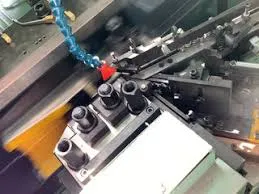
-
 Afrikaans
Afrikaans -
 Albanian
Albanian -
 Amharic
Amharic -
 Arabic
Arabic -
 Armenian
Armenian -
 Azerbaijani
Azerbaijani -
 Basque
Basque -
 Belarusian
Belarusian -
 Bengali
Bengali -
 Bosnian
Bosnian -
 Bulgarian
Bulgarian -
 Catalan
Catalan -
 Cebuano
Cebuano -
 Corsican
Corsican -
 Croatian
Croatian -
 Czech
Czech -
 Danish
Danish -
 Dutch
Dutch -
 English
English -
 Esperanto
Esperanto -
 Estonian
Estonian -
 Finnish
Finnish -
 French
French -
 Frisian
Frisian -
 Galician
Galician -
 Georgian
Georgian -
 German
German -
 Greek
Greek -
 Gujarati
Gujarati -
 Haitian Creole
Haitian Creole -
 hausa
hausa -
 hawaiian
hawaiian -
 Hebrew
Hebrew -
 Hindi
Hindi -
 Miao
Miao -
 Hungarian
Hungarian -
 Icelandic
Icelandic -
 igbo
igbo -
 Indonesian
Indonesian -
 irish
irish -
 Italian
Italian -
 Japanese
Japanese -
 Javanese
Javanese -
 Kannada
Kannada -
 kazakh
kazakh -
 Khmer
Khmer -
 Rwandese
Rwandese -
 Korean
Korean -
 Kurdish
Kurdish -
 Kyrgyz
Kyrgyz -
 Lao
Lao -
 Latin
Latin -
 Latvian
Latvian -
 Lithuanian
Lithuanian -
 Luxembourgish
Luxembourgish -
 Macedonian
Macedonian -
 Malgashi
Malgashi -
 Malay
Malay -
 Malayalam
Malayalam -
 Maltese
Maltese -
 Maori
Maori -
 Marathi
Marathi -
 Mongolian
Mongolian -
 Myanmar
Myanmar -
 Nepali
Nepali -
 Norwegian
Norwegian -
 Norwegian
Norwegian -
 Occitan
Occitan -
 Pashto
Pashto -
 Persian
Persian -
 Polish
Polish -
 Portuguese
Portuguese -
 Punjabi
Punjabi -
 Romanian
Romanian -
 Russian
Russian -
 Samoan
Samoan -
 Scottish Gaelic
Scottish Gaelic -
 Serbian
Serbian -
 Sesotho
Sesotho -
 Shona
Shona -
 Sindhi
Sindhi -
 Sinhala
Sinhala -
 Slovak
Slovak -
 Slovenian
Slovenian -
 Somali
Somali -
 Spanish
Spanish -
 Sundanese
Sundanese -
 Swahili
Swahili -
 Swedish
Swedish -
 Tagalog
Tagalog -
 Tajik
Tajik -
 Tamil
Tamil -
 Tatar
Tatar -
 Telugu
Telugu -
 Thai
Thai -
 Turkish
Turkish -
 Turkmen
Turkmen -
 Ukrainian
Ukrainian -
 Urdu
Urdu -
 Uighur
Uighur -
 Uzbek
Uzbek -
 Vietnamese
Vietnamese -
 Welsh
Welsh -
 Bantu
Bantu -
 Yiddish
Yiddish -
 Yoruba
Yoruba -
 Zulu
Zulu
Top Suppliers for Flat Die Thread Rolling Machines in the Industry Today
The Importance of Flat Die Thread Rolling Machines in Manufacturing
In the realm of precision manufacturing, the need for high-quality threaded components cannot be overstated. Among the various techniques employed to achieve this, flat die thread rolling has emerged as a highly efficient and effective method. This technique has gained considerable traction, making suppliers of flat die thread rolling machines vital players in the manufacturing industry.
Understanding Flat Die Thread Rolling
Flat die thread rolling is a cold-forming process that shapes metal into a desired form using flat dies. Unlike traditional machining methods that remove material, thread rolling compresses the material, allowing for the creation of threads without generating waste. This method not only improves material utilization but also enhances the mechanical properties of the finished product. Threads produced via rolling exhibit greater strength and durability compared to those made through cutting processes.
Advantages of Flat Die Thread Rolling Machines
1. Cost-Effectiveness One of the primary reasons manufacturers opt for flat die thread rolling machines is their ability to produce parts at a lower cost. The cold forging process reduces material waste and minimizes the need for secondary machining operations. As a result, manufacturers can achieve higher profitability while maintaining competitive pricing.
2. Precision and Consistency The use of flat die machines ensures that each threaded component is produced with high precision and uniformity. This consistency is crucial in applications where tolerances are tight, such as aerospace, automotive, and electronic industries. Quality control becomes more straightforward, as the rolling process yields parts that meet stringent specifications.
3. Increased Production Speed Flat die thread rolling machines are capable of producing threaded components at a much faster rate compared to other methods. The continuous operation minimizes downtime, leading to increased output and efficiency in the production process. In today’s fast-paced manufacturing environment, speed is a critical factor in meeting market demands.
flat die thread rolling machine supplier

4. Versatility A significant advantage of flat die thread rolling machines is their versatility. They can be adapted to produce a wide range of thread sizes and profiles. This flexibility allows manufacturers to cater to various industries and applications, from simple fasteners to complex precision components.
5. Enhanced Mechanical Properties Since the rolling process compresses the material, it results in a product with improved tensile strength and fatigue resistance. Parts made through thread rolling often exhibit better performance under stress, making them suitable for demanding applications.
Choosing a Reliable Supplier
Selecting the right supplier for flat die thread rolling machines is crucial for any manufacturing operation. A reputable supplier should not only offer high-quality machines but also provide comprehensive support, including training and maintenance. It's essential to choose a supplier with a strong track record and positive customer reviews, ensuring they understand the unique needs of the industry.
Additionally, assessing the technological advancements offered by the supplier can significantly impact production capabilities. Modern machines equipped with automation and digital monitoring features can enhance efficiency and quality, making them a worthy investment.
Conclusion
In summary, flat die thread rolling machines play a pivotal role in modern manufacturing, offering cost-effective, precise, and efficient solutions for producing threaded components. As industries continue to evolve, the demand for high-quality threaded parts will persist, further emphasizing the importance of reliable suppliers in this sector. By investing in advanced thread rolling technology, manufacturers can position themselves for success in an increasingly competitive marketplace.
